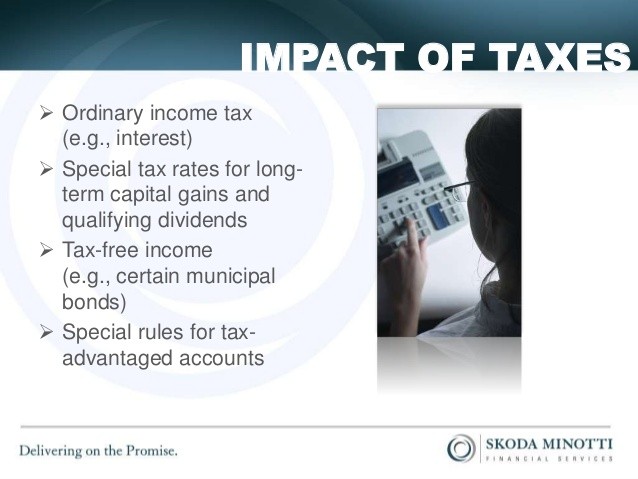Municipal Bond Tax Strategies From David Lerner Associates
Post on: 20 Июль, 2015 No Comment

Municipal bonds have tax advantages if investors use proper strategies.
Capital Gains and Losses
Capital gains and losses are classified as either short-term or long-term. They are short-term if they occur on an asset that you have held for one year or less. They are long-term if they occur on an asset with a holding period of longer than one year. The long-term capital gains tax rate for most investors is 15%. [In 2013, those earning less than $36,250/year single, or $72,500 for those filing jointly, are not subject to capital gains taxes. However, for those earning more than $400,000/yr single or $450,000/yr jointly, the captial gains tax rate in 2013 is 20%.]
Short-term capital gains are taxed as ordinary income. Capital losses are first applied against capital gains of the same type to reduce such gains. Thus, a long-term capital loss will first reduce long-term capital gains, and a short-term capital loss will first reduce short-term capital gains. Any excess long-term capital loss is used to offset short-term gain. Any excess short-term capital loss is used to offset long-term capital gain. Any capital losses remaining after offsetting all available capital gains can then be used to reduce ordinary income by up to $3,000 per year ($1,500 if you are married filing separately), with any losses in excess of that amount available to be carried forward indefinitely to reduce capital gains or ordinary income in future years under the same procedures. (IRS Publication 550) If you swap a municipal bond that has fallen in price for a similar bond, you may take a deduction for the capital loss that may be used immediately. The new bonds must differ in at least two of the following three criteria:
- Issuer
- Coupon Rate
- Maturity Date
This will satisfy the IRS Wash Sale rule which requires a swap into a substantially different security.
Swapping Into a Market Discount Bond
If you swap into a market discount municipal bond, you may owe income taxes on the discount amount of the new bond depending on how it is liquidated in the future. However, as with taxable bonds, an investor can elect to defer this tax over the life of this municipal.
Swapping Into Par, OID or Premium Bonds
One approach when realizing losses in municipals may be to restrict reinvestment to municipals:
- Selling at par or slightly under par
- A premium to par
- That were issued at a discount thereby circumventing the tax rules on market discount bonds
The Alternative Minimum Tax
The alternative minimum tax was born more than three decades ago to tax high income individuals who previously had been able to shelter portions of their income from taxation. It did this by nullifying many exemptions, deductions, and credits that taxpayers had used in the past. Today, more and more Americans are finding they are liable for this tax. Typically, taxpayers who may be subject to alternative minimum tax calculate their taxes two ways — one tax calculation for regular taxes and the other for AMT.
After the regular tax has been calculated, you need to compute the alternative minimum tax income. Once AMT income is calculated, a taxpayer is permitted to reduce that income by a so-called “exemption amount” before calculating the tax due. In 2011 the alternative minimum tax exemption was $48,500 for single and head of household filers. $74,450 for married people filing jointly and $37,225 for married people filing separately. In 2012 the AMT exemptions is scheduled to revert to $33,750 for single and head of household filers. $45,000 for married people filing jointly and $22,500 for married people filing separately. (Source: About.com Tax Planning: US, by William Perez)
From this figure, you can calculate the AMT tax liability. Of course, the higher of the regular income tax or AMT must be paid.
Certain Municipal Bonds and Mutual Funds are Not Exempt From the AMT
If you invest in bonds that aren’t exempt under the alternative minimum tax, you’re a candidate for AMT liability. This can also be true for certain mutual funds. Many mutual funds that provide tax- exempt interest invest at least some of their money in bonds that are not exempt under the AMT. Their annual statements tell the investor how much of the exempt interest dividend they received during the year is taxable under AMT.
Municipal AMT bonds still retain their state and local tax exemption as long as the investor purchases bonds from the state in which they reside.
Alternative Minimum Tax Liability
All of the above contains material that is believed to be accurate. However, Federal tax laws are complex and subject to change. Neither David Lerner Associates nor its employees give legal or tax advice. Investors should consult their attorney or tax advisor before acting on any tax advice.














